Study in Auckland 2024
- Education information
- Education in New Zealand: general features of the educational system
- Education in Auckland: popular academic and language programs for international students
- Secondary Education ib Auckland Leading Private Boarding Schools
- Higher Education: Best Universities for Foreign Students
- English courses in New Zealand for foreign students: programs and prices
-
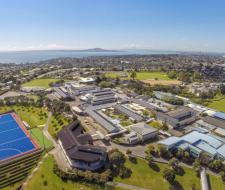 from 34280.00 $NZD / yearApply with documents
from 34280.00 $NZD / yearApply with documents -
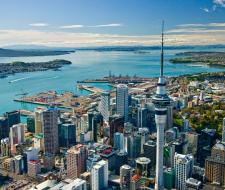 Individual lessons with the teacher are developed for each student.
Individual lessons with the teacher are developed for each student. New ZealandAucklandCurrently watching: 3from 50.00 $ / lessonApply with documents
New ZealandAucklandCurrently watching: 3from 50.00 $ / lessonApply with documents -
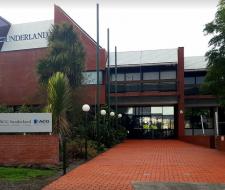 from 20850.00 $NZD / yearApply with documents
from 20850.00 $NZD / yearApply with documents -
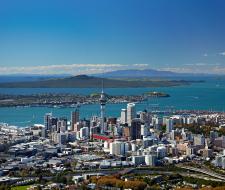 from 6240.00 $NZD / semesterApply with documents
from 6240.00 $NZD / semesterApply with documents -
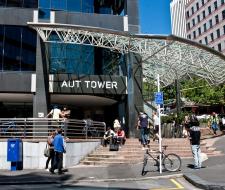 #3 in Best Global Universities in New Zealand
#3 in Best Global Universities in New Zealand New ZealandAucklandCurrently watching: 4from 12000.00 $ / yearApply with documents
New ZealandAucklandCurrently watching: 4from 12000.00 $ / yearApply with documents -
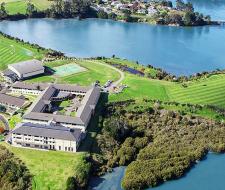 from 23200.00 $NZD / yearApply with documents
from 23200.00 $NZD / yearApply with documents -
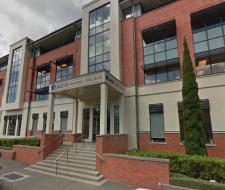 from 25500.00 $NZD / yearApply with documents
from 25500.00 $NZD / yearApply with documents -
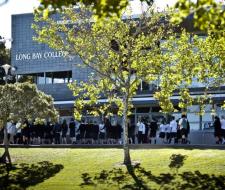 from 16280.00 $ / yearApply with documents
from 16280.00 $ / yearApply with documents -
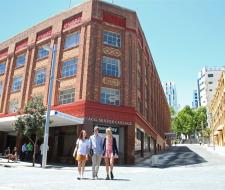 from 35800.00 $NZD / yearApply with documents
from 35800.00 $NZD / yearApply with documents -
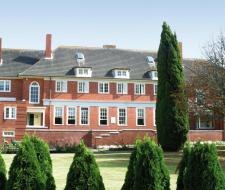 from 8400.00 $NZD / 21 weekApply with documents
from 8400.00 $NZD / 21 weekApply with documents
Alternative destinations
Education information
Education abroad is a great opportunity to get the most relevant knowledge for children and young professionals. Educational tourism is a very popular destination, which has received rapid development in the top countries of the world. They have established themselves as the best of the best countries in Europe: Great Britain, Switzerland, Germany and France, along with them, education in the USA and Canada is in demand. In these countries, the training of foreigners is excellent: hundreds of thousands of foreigners graduate from educational institutions every year. Special attention should be paid to small highly developed and not so popular countries for Russians, the level of education in which is not lower: Singapore, Ireland, New Zealand. Getting an education in these English-speaking countries is no less prestigious and, in addition, these states have their own distinctive culture, authentic sights, amazing nature that finds strong responses in the Russian soul.
Education in Auckland, the largest city in New Zealand, is represented by various directions. Russians have plenty to choose from: short-term courses for adults / children, summer camps for schoolchildren, secondary, higher education. Foreigners will be able to find many advantages both for studying and for broadening their horizons, getting acquainted with the culture and customs of this amazing country.
Auckland took third place in the ranking of the most livable cities according to the consulting company Mercer. The city is located in the northern part of the country on a huge plateau, and the surroundings of the city are more than exotic for a Russian person: mountain ranges, sea bays, small islands and 49 volcanoes on the volcanic field of Auckland. It is the warmest and sunniest city in the country. Most of all there are Europeans (58% of the population), immigrants from Asian countries, indigenous Maori people, African Americans and others also live here.
SMAPSE is the official representative of the leading language centers in New Zealand. We have selected for you the best options for studying in New Zealand with a detailed description of training centers, programs and prices, admission conditions, rating. Managers are ready to provide you with free advice: they will help you choose the best option for you and tell you about current discounts and promotions.
Education in New Zealand: general features of the educational system
In this article, we will talk in detail about what nuances await you when studying at various educational levels, but first get acquainted with the general features of the local educational system and the advantages of studying and living in the country:
- British standards
The model for creating and improving the educational system in New Zealand is considered to be the educational model of Great Britain
- Strict control
One of the main priorities of state policy is to ensure a quality life and education for children. This applies to all educational institutions: as a result, the level of education in private and public institutions is not much different.
- Security
The low level of crime and corruption has made the country a leader in various TOPs: parents who send their children on vacation or self-study can be sure of their safety. Host families are carefully monitored by the school and the police once a month.
- Tuition fees
Studying here will cost several times cheaper: the cost of programs is lower by 15-30% than in the the USA and Great Britain. The price range for the courses is quite wide and depends on such factors as the prestige of the school, location, course features.
- Conditions
Mild climate - the average annual temperature varies from +10 to +16 in the country, the climate is subtropical, temperate. Good environmental conditions - state policy pays special attention to the conservation of pristine nature. Technically equipped comfortable schools.
Education in Auckland: popular academic and language programs for international students
We offer you the main educational areas of Auckland, relevant for foreign students:
1) School (secondary) education :
- Primary School, Primary School (from five to twelve years old)
- Secondary School, Secondary School (13 to 18 years old).
2) Higher education :
- Bachelor
- Master
- MBA
3) Language courses:
- Winter Education: Christmas in Auckland + English
- Summer education for children: children's camps
- Summer and leisure for adults
- Preparatory areas
- Academic style
- Language training before university
- Foundation
- Language classes
- Language learning + outdoor activities
- Standard courses
- Language courses + hobbies.
Secondary Education ib Auckland Leading Private Boarding Schools
According to statistics, the city has about 340 schools: most of them are state-owned, about 39 private educational institutions, 63 partially state-owned. Most schools are general, but there are a modest number of separate schools. Most educational institutions are organized according to the zonal principle: children attend schools at the place of residence, but for private institutions this rule does not apply. In Auckland, there are the largest and most prestigious schools in New Zealand, where you can choose different learning options:
- Get a British certificate by passing the GCSE , A-LEVEL programs
- Take National NCEA module
- Choose the "Preparing for IB" course, and then enter International Baccalaureate program.
Already from the elementary grades, teachers pay attention to questions of preparation for the professional activity of students. In addition to the academic component, students attend special circles designed to reveal talents and personal development. In high school, such electives become full-fledged and are a source of in-depth knowledge in the chosen professional field. In elementary school, homework is not mandatory. Every six months, parents receive a detailed report on the success of their children.
In this country, study / vacation periods are very different: in February, the school year begins (it is divided into four quarters) and lasts until December. Between each quarter is a two-week vacation. Preschool education is represented by free kindergartens for children 3-5 years old.
Under the laws of the country, children under 13 years old can study in New Zealand schools only on condition that his parents live in the country, otherwise an official guardian is needed. Teenagers over 13 years of age can live independently in the country - that is why many parents decide to send their schoolchild to high school.
From the age of five, children go to primary school, where from the third grade the study of the following subjects begins: reading, speaking, writing, arithmetic, health, physical education, art, social skills, learning skills. The middle level of the general school is more responsible, the student must decide on the future specialty.
Every year, about 20% of the country's budget goes to education, so that all classes are technically equipped, and take into account age-related development. Teachers adhere to a creative approach, interactive teaching methods. In their free time, children can attend creative, sports sections.
Higher Education: Best Universities for Foreign Students
Higher education in New Zealand is represented by universities and technical institutes. Universities are more suitable for students who are focused on theory, while institutions are more suitable for practical students. Bachelor's degree lasts three to four years, master's program - 2 years, and doctoral studies - 3. Most universities prepare in specific areas (narrow profile). The academic year in higher schools begins at the end of March: the academic year is divided into semesters or trimesters, and it ends in November. Students may enroll without passing entrance exams, but the applicant must demonstrate a very high knowledge of the language.
Auckland graduation documents are recognized in most states - according to statistics, 70% of graduates find work outside the country. Tuition at local universities is lower than in Europe, the same with living expenses. It is allowed to earn extra money while studying - a great opportunity to cover training costs! Thanks to an open immigration policy, university graduates have good prospects to find work and stay in the country.
English courses in New Zealand for foreign students: programs and prices
|
Course name |
Hours per week |
Number of students |
Required Language Proficiency |
Cost, New Zealand dollars (per lesson) |
|
General english |
20-23 |
10-15 |
For students at any level (Beginner) |
415 |
|
Intensive English |
24-30 |
8-10 |
450 |
|
|
15-20 |
10-15 |
1500 / week |
||
|
20-30 |
8-10 |
Intermediate |
Check with SMAPSE managers |
|
|
Specialized courses |
20-25 |
10-15 |
Upper-intermediate |
1395/7 days |
|
Professional courses |
Intermediate |
Check with SMAPSE managers |
||
|
20-30 |
8-10 |
Check with SMAPSE managers |
||
|
From 25 |
8-10 |
Intermediate |
475 |
General statistics on education in Auckland
General information about Auckland
| Country | New Zealand |
|---|---|
| Region | Auckland |
| Region 2 | Auckland |
| Population | 417,910 |
| Visitors | 2,217,000/year |
| Time Zone | Pacific/Auckland |
Cost of living in Auckland
| Expenses - USD/Month. | Min. | Med. |
|---|---|---|
| Accommodation | 447 | 598 |
| Food | 251 | 453 |
| Transportation | 80 | 207 |
| Communications and utilities | 113 | 122 |
| Clothing | 27 | 101 |
| Sports and leisure | 28 | 96 |
| Total | 947 | 1,577 |
Accommodation options in Auckland
| Shared room outside of centre | 451 |
|---|---|
| Shared room in city centre | 604 |
| 1 bedroom apartment outside of centre | 822 |
| 1 bedroom apartment in city centre | 966 |
The Coordinates Of Auckland
| Time Zone | Pacific/Auckland |
|---|---|
| GMT | +13 |
| DST | +12 |
| Latitude | -36.866670000 |
| Longitude | 174.766670000 |
| Elevation (STRM3) | -32768 m. |



